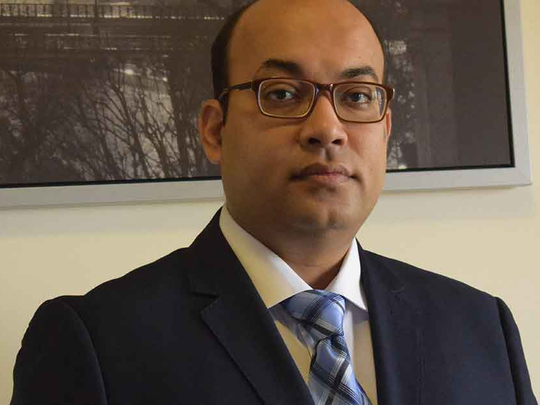
Understand affordability
It is better to work out how much you can pay for your dream house before you start looking for it. The mortgage is decided based on the affordability criteria. Lenders have various methods to calculate and the amount you can borrow will depend on a lender’s set benchmarks. As per the UAE Central Bank, the bank can consider only 50 per cent of the monthly income to ascertain the buyer’s loan eligibility. Normally, principal, interest and insurance together should not exceed 30-35 per cent of the total annual income. Make sure not to overstress your financial budget while computing affordability.
Borrowing ratio
How much you can borrow depends on your age, income source, credit performance, projected cost and the bank’s lending ratio. As per Central Bank regulations, the total debt-burden ratio of an applicant cannot surpass half of his/her income. Moreover, the maximum financing amount allowed for UAE nationals is up to eight years of annual salary and for expats, it’s up to seven years. The maximum loan to value (LTV) and the interest rates vary among lenders.
As per the guidelines, if an expatriate buys a property less than or equal to Dh5 million, then he/she would qualify for a maximum 75 per cent of the value of the property and if it is more than Dh5 million then 65 per cent of the value of the property. For subsequent property purchase, the ratio limit is 60 per cent of the value of the property. Likewise, for UAE nationals to purchase a property less than or equal to Dh5 million, the maximum they can borrow is 80 per cent of the value of the property and for more than Dh5 million, it is 70 per cent. For subsequent property investment, he/she can borrow 65 per cent of the property value. For off-plan purchase, the Central Bank put the standard LTV as 50 per cent regardless of purpose, value or category of the purchaser.
Pre-approval
During the buying process, getting the mortgage pre-approval is the first step if you plan to buy a property with a mortgage. It boosts a buyer’s confidence and helps understand the figure that he/she can afford as per bank guidelines. Furthermore, it gives assurance to the seller to discuss the deal
with the buyer as pre-approval letter confirms that the mortgage lender
has checked the credit history and the buyer’s income profile qualifies for the said amount.
To acquire pre-approval in the UAE, either approach different lenders directly or hire mortgage consultants who can hold all your stress and could propose the ideal mortgage based on the prerequisite.
Lending rates
The mortgage rates in the UAE are defined in terms of fixed and adjustable rates. In fixed rate, the borrower knows precisely how much the monthly payment would be and therefore it is stress-free to calculate and finance within the set budget, regardless of market fluctuations. When the mortgage interest rates are mounting, fixed terms are favourable, but when there is deterioration in rates, choose the adjustable mortgage terms. Usually, most banks here have fixed terms, two or five years fixed rate followed by the bank base rate plus the current EIBOR rate, which is the variable rate term. Generally, these rates will be higher than the initial fixed rate, so shrewdly shop around and calculate the overall rate to evade any stress on your budget.
Processing cost
Remember, along with the buying cost, there is a bank and property transfer cost associated with the purchase value. If the buyer has decent cash backup of around 30 per cent of the property purchase price, then indeed the deposit would not be a big barrier on the investment plan. The mortgage cost added on your calculation sheet would be the bank processing fee, property evaluation fee, property and life insurance cost based on the value of the property and the mortgage registration fee at the land department. To ease the initial load, a few banks in the UAE offer buyers an option to cover up the partial cost in the lending amount. To have savings on the processing cost, negotiate with the banks about the overall mortgage cost before signing on the dotted line.
— The author is Managing Director of 4C Mortgage Consultancy












